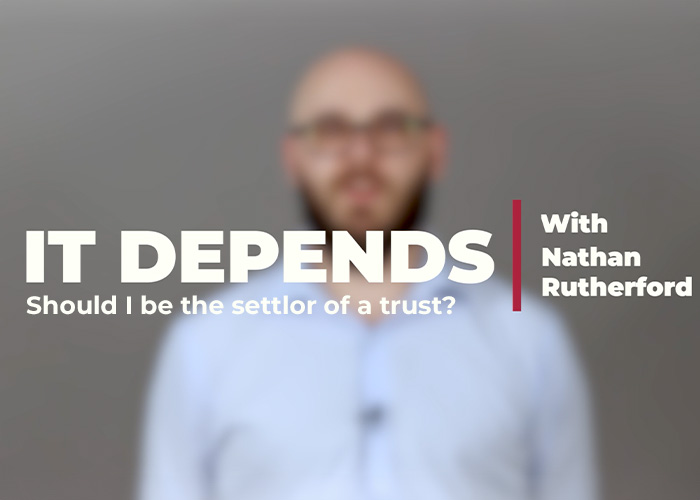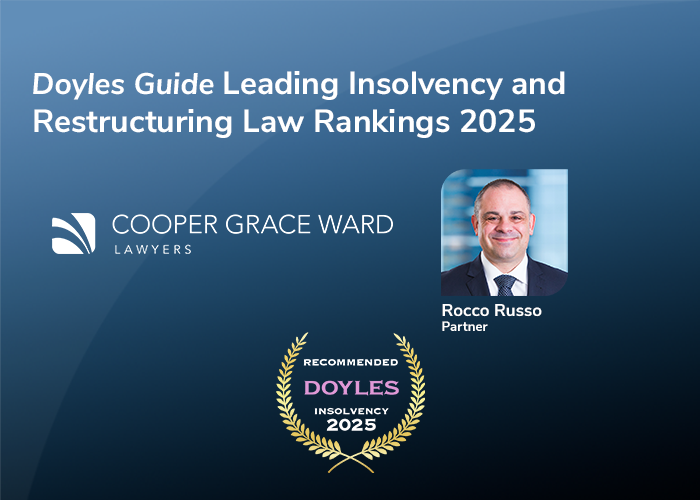In this edition of ‘It depends’, lawyer Nathan Rutherford talks about what the settlor of a trust is and who should act in that role.
Transcript
Hi. Welcome to It Depends. In today’s edition, I’m going to talk about a simple but often overlooked issue that can arise in estate planning. And often it’s only picked up a couple of years after the issue has actually happened. So, today I’m going to talk about what the settlor of a trust is and who should act in that role.
What is a settlor of a trust?
If we’re looking at the transaction of setting up a trust, the settlor is the person who hands over the settlement sum to the trustee, along with the list of rules that create the trust. Usually, the settlor will be either the deed provider, if you buy a trust deed off the shelf, or it can be your accountant or lawyer.
Who can be the settlor of a trust?
Anyone can be the settlor of a trust, as long as they’re over 18 and have capacity. I mentioned before that the settlor’s usually someone independent, but there’s no legal requirement that they have to be independent. The settlor can be a beneficiary of a trust, but having the settlor as a beneficiary or trustee can bring in some tax consequences that most trusts are often trying to avoid.
Should I be the settlor of a trust?
This is a question that seems pretty unimportant, but it actually has some consequences if you don’t think it through. I mentioned before that there can be tax consequences that arise if a settlor can become a beneficiary or a trustee of a trust. For this reason, a lot of trust deeds actually include provisions which prevent the settlor from ever being a trustee or a beneficiary of the trust. And it can be a little bit difficult to change these provisions. But it’s quite common for clients to want to appoint their accountants and advisors as their executor, and the controllers of their trusts in the Will. So, we have this issue where the client’s intended controller for their entities is actually a person that’s prevented from acting under the terms of the trust deed.
I am the settlor of a client’s trust, what now?
It depends. There’s a lot of different ways we can try and overcome this. It might be possible to appoint a company as the trustee of the trust and have the settlor be a person that acts as the director of the company. This is going to depend on the terms of the trust deed. Another option might be to try and vary the trust deed to remove any restrictions which prevent the settlor from being an appointor of the trust. This doesn’t appoint them as the trustee, but it might give them ultimate control by allowing them to choose who the trustee of the trust is. So, I think our advice for advisors here is to have a think about whether it’s actually appropriate for you to act as the settlor for the trust. If this is the sort of client that is likely to appoint you as the controller of their trust in their Will or when they die, then maybe it’s best off to have someone else act as the settlor for the trust.
If this sounds like an estate planning problem that you or some of your clients might have, please feel free to reach out to me or one of the team and we will be happy to talk you through the options. Thanks for watching.





